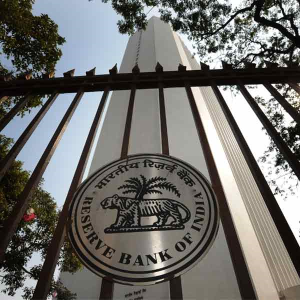Moody’s: New Financial Code Will Curb RBI Independence
 The RBI headquarters in Mumbai (file photo: DNA)
The RBI headquarters in Mumbai (file photo: DNA)
The proposed changes in the Indian Financial Code (IFC) have been criticised by Moody’s, which believes that giving the government a veto over interest rates will curb the RBI’s independence and dent its performance in tackling inflation.
The draft Indian Financial Code bill is aimed at replacing the multiple laws – some of them framed before 1947 – that govern the country’s financial sector. It proposes a monetary policy committee at the RBI to set interest rates. But contentiously, the government would appoint four of the committee’s seven members, effectively giving itself a majority in decision-making.
An earlier version of the draft had allowed the RBI governor a veto over the panel's decision, but the revised draft does not.
The government claims that the RBI’s independent decisions on monetary policy would not be diluted, but analysts believe the government wants a greater say in RBI’s rate decisions.
“We believe that a government-elected panel undermines the RBI's independence. Moving to the new model would severely dent the RBI's competency: Credibility would be lower, politics would drive decisions, and transparency would be reduced,” Moody's Analytics said in a report.
“Overall, we believe that tampering with the central bank's independence would make it difficult to anchor inflation expectations. This would weigh on India's economic prospects, particularly financial market stability,” the rating agency said.
The report ‘India's Outlook: Waiting for Reforms to Fuel Growth’ said India's monetary policy, with governor Raghuram Rajan at the helm, has been effective. Inflation has fallen, external accounts have improved, and the economy is poised for further rate cuts.
But the proposed new financial code “could undo the RBI's good work”, it said.
According to the Financial Times, putting the determination of interest rates in the hands of politicians would result in India suffering from a looser monetary stance than is in its interests.
“No matter what damage is wrought by persistent inflation, in the short term, voters prefer low rates and a fast-growing money supply. This is why delegating the task to a hard-nosed technocrat is vital if markets are to be convinced that inflation is not always just around the corner,” the FT noted.
Most analysts agree.
“The interest rate decision should lie with the RBI,” said D.K. Joshi, chief economist of rating agency Crisil. The central bank needs its autonomy to be accountable, he told The Hindu.
To Learn More:
Moody's cautions against curbing RBI autonomy on policy rates (PTI)
Mixed views on move to dilute powers of RBI Governor (by Oommen A. Ninan, The Hindu)
Reserve Bank of India may say no to Indian Financial Code draft on interest rate panel (Economic Times)
New Delhi should loosen its grip on interest rates (Financial Times)
Give the RBI its independence (The Hindu)
- Top Stories
- Controversies
- Where is the Money Going?
- India and the World
- Appointments and Resignations
- Unusual News
- Latest News
- India College Chain’s Expansion into U.S. Draws Opposition from Massachusetts Officials over Quality of Education
- Milk Shortages in India Tied to Release of New Movies Featuring Nation’s Favorite Stars
- Confusion Swirls around Kashmir Newspaper Ban in Wake of Violent Street Protests
- Polio-Free for 5 Years, India Launches Vaccine Drive after Polio Strain Discovery
- New Aviation Policy Could Increase Service, Lower Ticket Prices






Comments